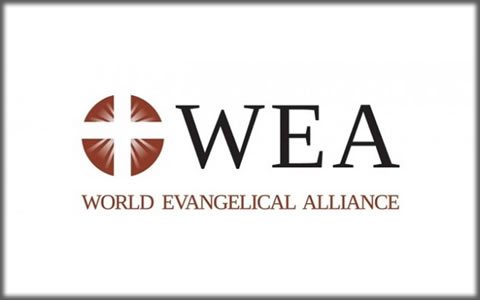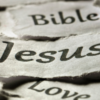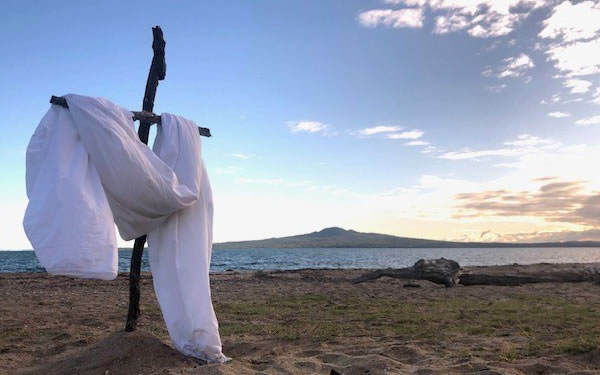
A New Perspective – Auckland Church Leaders Easter Message
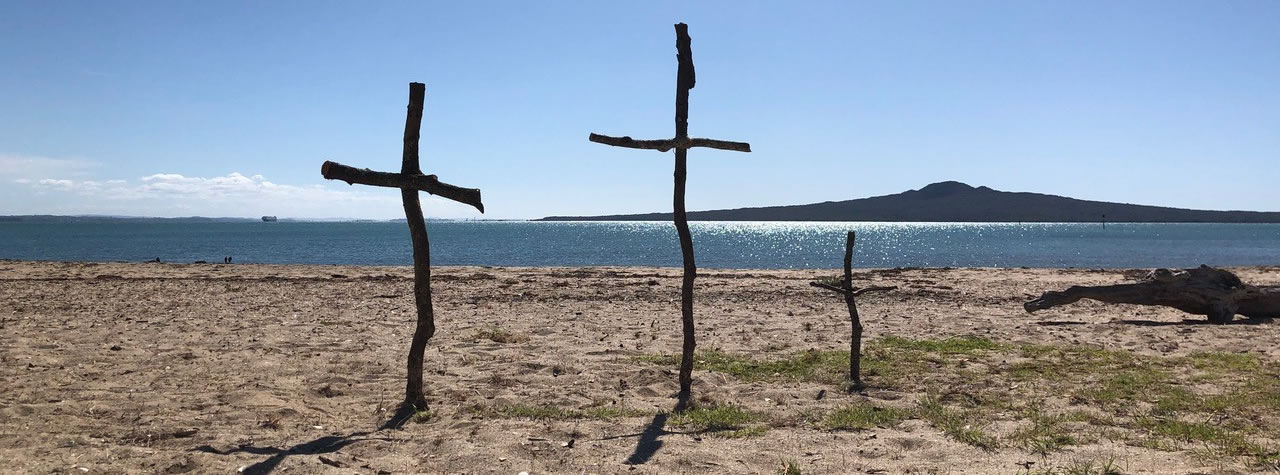 ‘Unprecedented’. ‘Social distancing’. ‘Self-isolation’. ‘Community outbreak’. ‘Lockdown.’ These and other words have come to dominate our news feeds and conversations. A few weeks ago, the world was ordinary; now, it is different, unusual, unfamiliar. COVID-19 has turned into a global pandemic affecting every aspect of our lives. We have been turned upside down and inside out, and, understandably, are left feeling dazed and confused. People have died, more deaths will follow, travel is drastically restricted, and society is being changed. Life is different.
‘Unprecedented’. ‘Social distancing’. ‘Self-isolation’. ‘Community outbreak’. ‘Lockdown.’ These and other words have come to dominate our news feeds and conversations. A few weeks ago, the world was ordinary; now, it is different, unusual, unfamiliar. COVID-19 has turned into a global pandemic affecting every aspect of our lives. We have been turned upside down and inside out, and, understandably, are left feeling dazed and confused. People have died, more deaths will follow, travel is drastically restricted, and society is being changed. Life is different.
Typically, at Easter, Christians across the globe gather in churches to worship and celebrate the death of Jesus Christ on Friday and his glorious resurrection on Sunday. Despite the popular image of empty churches and dusty pews, churches in New Zealand are thriving and many have thousands of people turn up each week to worship God. But not this Easter. Not in Aotearoa in 2020. We are in the middle of a lock-down. But, while traditional church services are cancelled, this does not mean Easter is cancelled. Since the pandemic began to take hold, creative and compassionate responses to COVID-19 have come from across all strata of society, not least from church leaders. Easter is being celebrated in family bubbles around dinner tables, and, of course, en masse online. And the message of Easter is being lived out in all walks of life in acts of service, compassion, and care.
What is the meaning of Easter? What are Christians celebrating in the death of Jesus Christ and in his miraculous resurrection? And what does that have to do with COVID-19 and the problems we face in our real lives? Easter is about the ways in which God breaks down every barrier that exists in order to enter into the closest of relationships with us and make it possible for us to find our fulfilment, purpose, peace, and joy in him. In a world of fear and dislocation caused by isolation, sickness, and anxiety, we need to hear the words of joy again, and of peace, and of love. Easter speaks just these words over us.
In the Bible, we are told that Jesus, on several occasions, “tore open” the barriers that separate humanity from God. The language is deliberately active because the action is so forceful. Jesus died on a Roman cross and, as he did, the large curtain that divided the inner rooms of the Jewish temple was torn apart. This curtain was around 15 metres high and 9 metres wide and embroidered to represent the panorama of the heavens. In other words, it symbolised the sky, and the sky was understood by the people of the time as a barrier between this world and God. Jesus died, the curtain was torn apart and God’s presence flooded the earth. Seeing this, the Roman soldier guarding the cross of Jesus declared, “surely this man was the Son of God!” (Mark 15:39). Jesus broke down the barriers between humanity and God. This is the Easter message.
Easter is part of a bigger story that began with Christmas. At Christmas, we remember Jesus’ birth, by the blessed virgin Mary. Mary is said to have found favour in God’s sight and was told that she would bear a child, who would be the Son of God. And, as it was in the sky-rending scenes at the cross, the pattern was the same: a physical barrier—in this case, Mary’s human form—was passed through by God, who filled the womb with his love and favour.
A further barrier-breaking is seen in the resurrection of Jesus on Easter Sunday. Here, the barrier is a massive stone that seals his tomb. The kind of tomb in which Jesus was buried was shaped like a house. At the entrance to the ‘house’ was a door—this time, a sealing stone. The difference between the tomb and a house is that a house and its door are designed to open while the sealing stone on the tomb is meant to be permanently closed.
The sealing stone at the tomb was a symbolic barrier between this world and the next. The women who first came to Jesus’ tomb witnessed this barrier removed—the stone had been rolled away—Christ had risen! He had left the tomb, departed from this world and, in doing so, tore the heavens apart and, once more, opened up human access to God.
And, finally, the upper room. We read that, after the resurrection, Jesus’ followers were all together in one room, with the doors locked. This signifies the impenetrability of another barrier. Jesus moved down from his heavenly state; he appeared mysteriously and reassured his terrified audience. In the absence of angels or a Roman centurion, it was the once-doubting disciple Thomas who exclaimed: “My Lord and my God!”
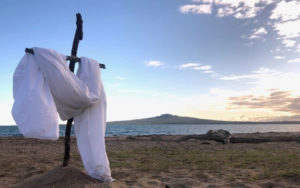
Easter Cross photo by Susanna Burton
COVID-19 is the latest in a long list of barriers in life. Fear, loneliness, panic, anxiety, and a host of other emotions lurk close to the surface for many people, and the Easter message is that God is not unaware of how we feel, nor is he passive in the face of such challenges. Christians are those who seek to follow God and to be barrier-breakers as well.
In the early centuries of the Church, Christians stood out amongst their contemporaries for their response to the epidemics that swept through the Roman world. Julian the Apostate, the last pagan Roman Emperor, wrote during the mid-fourth century that “the godless Galileans care not only for their own poor but for ours as well.” This social response led to Christians sacrificially serving their neighbours. We have many accounts of Christians entering plague-ridden cities to care for the sick and, in doing so, helping to contain fear and the spread of disease. The response to COVID-19 has been no different as people from all walks of life have stepped in and stepped up to help.
Many are asking the questions: What will life look like after COVID-19 has passed? How will social interactions change? What will the new world look like? Will we simply return to our old ways or will we re-think the ways we live and interact with each other? This Easter, Christians are actively looking for ways to follow God through what, previously, were barriers but are now open doors, to find ways to serve, to love and to care for one another. What God has done for us in Christ, we want to do for others.
In a context of ‘social distancing’, Christians, like others, practise physical distancing while maintaining social proximity via streamed worship services, virtual communion, care packages for those in isolation, online socials for youth and young adults, and numerous zoom calls. A myriad of other examples could be given for ways in which the Easter message is being lived out in a COVID-19 world.
What will the life look like after the pandemic? Crises like COVID-19 tend to shake the assumptions of societies, and it is here where Easter speaks to us, telling us to care for one another, to check in on our neighbours, to call those at risk, and not to let barriers—self-imposed or other—prevent us from living lives of meaning and purpose. Easter tells us that God loves us, cares for us, and will stop at nothing, not even the death of his Son, to break through any barrier that separates us from him. Easter reminds us that, in the future—after the pandemic—love, goodness, peace, and hope will remain.
Covid-19 has put up barriers between us: We are homebound. Most of us can no longer be in our usual work, educational or leisure spaces. Outside of our bubble, we ensure there is at least a 2-metre distance from others. But God has no limits and offers us a new perspective. He can be with each of us exactly where we are, even as we are locked down into the boundaries of our homes and local environments. God can break down barriers and he can be with us both now, wherever we are confined, and into the future, with whatever the future will bring. This is the hope of Easter.
As Auckland Church Leaders, we welcome you to join us this Easter season. We have online services happening all over Auckland.
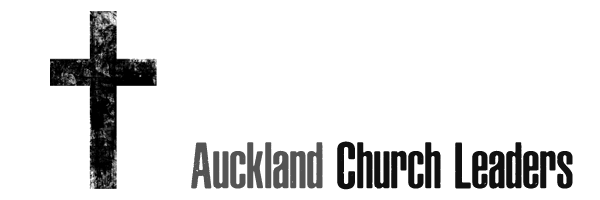
- Paul Allen-Baines
Congregational Union of N.Z. - Rev. Ross Bay
Anglican Bishop of Auckland - Pastor Tak Bhana
Senior Pastor, Church Unlimited - Pastor Paul de Jong
Senior Pastor, LIFE - Pastors Jonathan and Robyn Dove
Senior Pastors, Greenlane Christian Centre - Most Rev. Patrick Dunn
Catholic Bishop of Auckland - Majors Ian & Liz Gainsford
Divisional Leaders, The Salvation Army - Jaron Graham
on behalf of the Church of the Nazarene - Brett Jones
Interim National Superintendent, Wesleyan Methodist Church - Pastor Sanjai Kandregula
Executive member, Assemblies of God NZ - Pastor Brian Kelly
Senior Pastor, Calvary Chapel - Pastor Nich Kitchen
Mountainside Lutheran Church - Dr Stuart Lange
National Director, NZ Christian Network - Kok Soon Lee
Auckland Chinese Churches Association - Pastor David MacGregor
National Director, Vineyard Churches - Andrew Marshall
National Director, Alliance Churches of New Zealand
- Very Rev. Anne Mills
Dean, Auckland Cathedral of the Holy Trinity - Steve Millward
Moderator, Northern Presbytery, Presbyterian Church - Pastor Bruce Monk
International Overseer for Acts Churches & Equippers - Pastor Sam Monk
Senior Pastor, Equippers Church & Acts National Leader - Pastor Peter Mortlock
Senior Pastor, City Impact Church - Rev. Te Kitohi Pikaahu
Anglican Bishop of Te Tai Tokerau - Pastor Lui Ponifasio
on behalf of the Christian Community Churches of N.Z. - Pastor Boyd Ratnaraja
National Leader, Elim Churches - Pastors Dean Rush
Senior Leaders, C3 Church Auckland - Pastor Jim Shaw
New Life Churches Executive team - Bishop Brian Tamaki
Senior Minister of Destiny Churches International - Pastor Allan Taylor
Northern Baptist Association - Pastor Ben Timothy
President, North New Zealand Conference, Seventh-day Adventist Church - Rev. Graeme R. White
Auckland Synod Superintendent, Methodist Church of N.Z.


